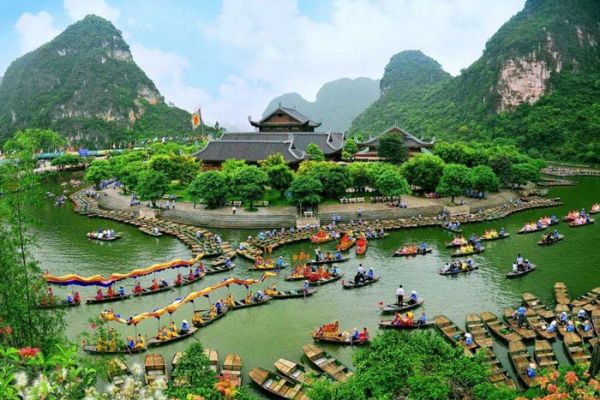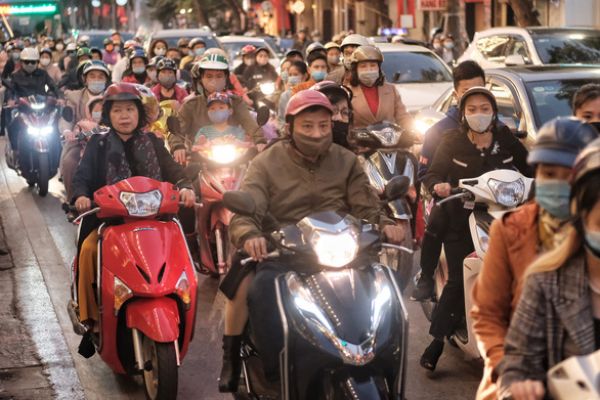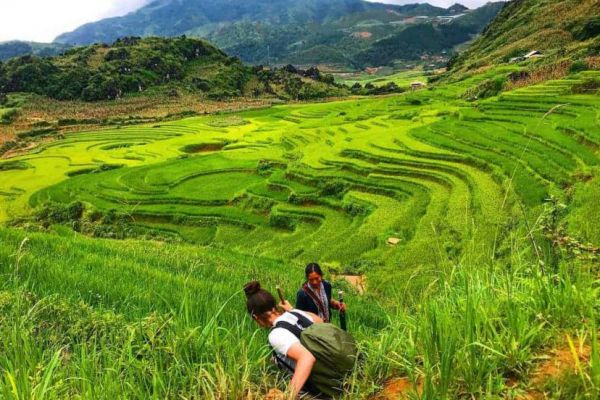
As tourists navigate the diverse culinary landscapes of popular destinations, they are often exposed to inherent risks associated with food safety. The journey from farm to table involves various stages where contamination and improper handling can occur, giving rise to potentially severe health concerns for travelers.
Contamination risks, such as the mishandling of raw ingredients or unhygienic food preparation practices, pose a substantial threat to the health and well-being of tourists. Instances of foodborne illnesses not only jeopardize the immediate travel experience but can also have long-term implications for the reputation of a destination.
Improper handling of food, often exacerbated by inadequate monitoring and traceability, further compounds these challenges. With the traditional supply chain systems, it becomes challenging to identify and rectify issues promptly, exposing tourists to unnecessary risks.
In light of these concerns, the incorporation of Blockchain Technology in the Tourism Industry becomes a transformative measure to address prevalent food safety issues. This innovative technology provides a robust framework to enhance accountability and transparency. It enables stakeholders, from producers to consumers, to access a secure and unalterable record of each transaction, handling event, and transportation phase.
Blockchain's intrinsic features – transparency, immutability, and traceability – collectively form a powerful arsenal against the intricate challenges faced in the context of the Blockchain Technology in Tourism Industry. Understanding these features and their application is paramount in comprehending how blockchain enhances food safety throughout the supply chain.
Transparency: Blockchain's transparency is a cornerstone in revolutionizing food safety. Every transaction, from the initial stages of food production to the end consumer, is recorded on an immutable ledger accessible to all stakeholders. This transparency ensures that every participant in the supply chain can view and verify the authenticity of the information, fostering a heightened level of trust and accountability.
Immutability: Immutability, a key feature of blockchain, guarantees that once information is recorded, it cannot be altered or tampered with. This inherent quality ensures the integrity of data related to food safety. Any attempt to manipulate information within the blockchain would be immediately evident, providing a safeguard against fraudulent activities and reinforcing the reliability of the recorded data.
Traceability: Traceability is the ability to track the journey of a food product from its origin to its final destination. Blockchain's decentralized ledger facilitates real-time tracking and tracing, allowing for a comprehensive overview of the entire supply chain. This feature is instrumental in swiftly identifying and isolating any potential issues related to food safety, contributing to the prompt resolution of challenges and minimizing the impact on both tourists and destinations.
By leveraging these features, the Blockchain Technology in Tourism Industry becomes a catalyst for enhanced food safety. The transparency ensures that stakeholders have access to accurate and real-time information, the immutability secures the integrity of the recorded data, and the traceability enables swift responses to potential issues. Together, these features create a robust framework that not only addresses the challenges faced but also sets a new standard for safety and reliability in the culinary experiences offered by tourist destinations.

In the dynamic landscape of the Blockchain Technology in Tourism Industry, the role of blockchain in providing end-to-end visibility in the intricate web of the food supply chain is transformative. This feature addresses the challenges of opaqueness and lack of real-time insights that have long plagued traditional supply chain systems within the tourism sector.
Consider a scenario where a tourist, passionate about experiencing local cuisine, visits a renowned restaurant. With blockchain's end-to-end visibility, every step in the food supply chain, from sourcing ingredients to the final preparation, is accessible. The tourist can explore detailed information about the origin of ingredients, the conditions under which they were transported, and the various stages of handling. This transparency not only enriches the culinary experience but also ensures that the tourist can make informed choices based on the entire journey of the food products.
The intricacies of the food supply chain often involve multiple stakeholders, including farmers, distributors, and vendors. Blockchain's decentralized ledger ensures that each participant has access to a synchronized and real-time record of the entire process. This eliminates information silos and enhances collaboration, fostering a more efficient and transparent supply chain.
In the innovative landscape of the Blockchain Technology in Tourism Industry, transparent supply chains facilitated by blockchain play a pivotal role in guaranteeing the safety and quality of food products. This revolutionary approach addresses the long-standing challenges of uncertainty and lack of visibility in traditional supply chain systems within the tourism sector.
Imagine a tourist exploring a bustling local market in a tourism destination. With blockchain's transparent supply chains, detailed information about the origin and handling of each food product is readily available. From the farm or production facility to the market vendor, the entire journey is recorded on an immutable ledger. Tourists can confidently make choices, knowing the origin, freshness, and quality of the food they consume. This transparency not only enhances the overall culinary experience but also fosters trust between tourists and the destinations they visit.
The decentralized nature of blockchain ensures that all stakeholders, from local farmers to vendors, have access to the same transparent information. This collaborative approach eliminates information gaps and ensures that everyone involved in the supply chain is on the same page. As a result, the tourism industry can uphold the highest standards of safety and quality in its culinary offerings.

One of the transformative aspects of blockchain technology in food safety, within the Blockchain Technology in Tourism Industry, is its unparalleled ability to enable real-time tracking and tracing of food products. This capability serves as a game-changer, allowing the tourism industry to respond promptly to any potential issues, safeguarding the health and well-being of consumers.
Consider a situation where there's a concern about the quality or safety of a specific batch of perishable goods. With blockchain's real-time tracking, authorities can swiftly trace the entire journey of the affected products, identifying the source and pinpointing where potential issues might have occurred. This rapid response ensures that unsafe products are identified and removed from circulation before reaching the consumer, preventing widespread health risks.
In conclusion, theBlockchain Technology in the Tourism Industry is not just a technological advancement; it is a paradigm shift towards a safer and more transparent culinary landscape for travelers. By actively addressing and mitigating food safety challenges, blockchain ensures that tourists can indulge in the diverse cuisines of the world with confidence and trust, thereby elevating the overall tourism experience.










(84-63) 3 826042 – (84-63) 3 511142
No 54 Nguyen Dinh Chieu, Ham Tien Central Mui Ne Beach Binh Thuan Vietnam
523 To Hien Thanh District 10 Ho Chi Minh City Vietnam
Ha Long Halong City Quang Ninh Vietnam
A13 Hung Thong 2 Halong City Quang Ninh Vietnam




